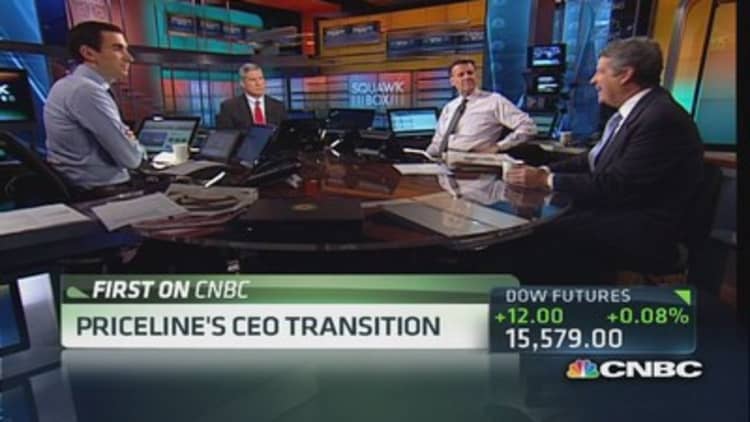
It's an "urban legend" that Priceline.com pitchman William Shatner made as much as $600 million from receiving stock in the company, said Jeffery Boyd, chairman and CEO of the online travel website.
The "Star Trek" actor was paid in equity in the early days of the business, but unfortunately he sold the stock "at a relatively low price," Boyd revealed on CNBC's "Squawk Box" on Friday. "But he's doing OK. Don't worry about him."
CNBC has reached out to Shatner's representatives for comment, but have not heard back.
(Read more: A Twitter boost for Patrick Stewart)
Priceline stock now trades at more than $1,000 a share. It's up nearly 65 percent this year alone.
(Read more: Squawking Sky high flats, #Twitter IPO, taxing pot)
After the closing bell on Wall Street on Thursday, the company said it earned $17.30 per share excluding one-time items in the third quarter. Revenues also came in better than expectations with an increase to $2.27 billion.
Priceline also announced that as of Jan. 1 it's splitting the chairman and CEO roles. Boyd will remain chairman. But Darren Huston will become president and chief executive. He's currently CEO of Booking.com, the biggest unit of Priceline.
"I think a lot of what many people don't know about Priceline is 85 percent of our business is overseas," Huston said. "So I think it's a great partnership to have somebody here. The headquarters being in Norwalk, [Conn.], I live in Europe."
He said it feels like the economies of southern Europe are stabilizing. "The north still has a little bit of contagion."
"We're seeing at least travel demand is very strong across the world, particularly in Asia," he said. "We're seeing a lot of great outbound business from China, inbound into Japan."
Boyd said U.S. travel demand is a bit healthier than Europe's. "We have had rising airfares We have had rising average daily rates for hotels. And that's because there's good business in leisure demand," he said.
As for the consolidation in the airline industry, Boyd said he has more a contrarian view.
"Consolidation normally means reduced capacity and prices going up," he said. "But the most important thing really is for airlines to be able to make money and continue to provide good service. And the consolidation has really been necessary to make that happen."
—By CNBC's Matthew J. Belvedere. Follow him on Twitter @Matt_SquawkCNBC.


